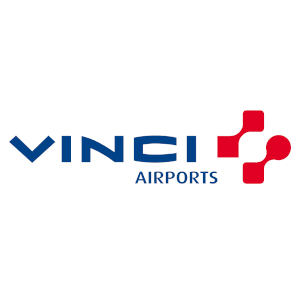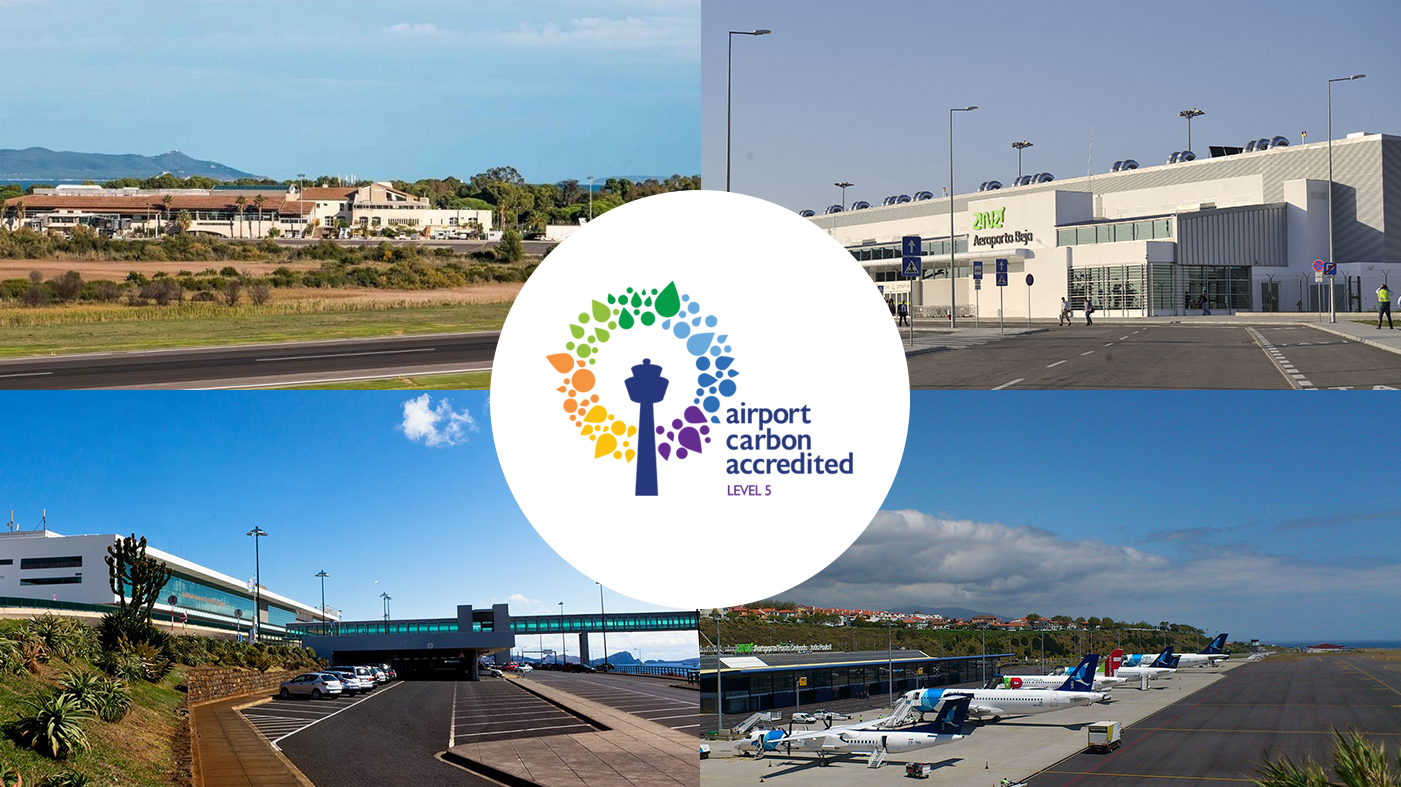Four VINCI Airports are within the first airports in the world to obtain Airport Carbon Accreditation Level 5


- Toulon Hyères airport in France, Beja, Madeira and Ponta Delgada airports in Portugal, received Level 5 accreditation assigned by ACI, Airports Council International.
- Level 5 certifies an airport that has reached a net zero balance on its direct emissions.
- This certification significantly accelerates the entire airport ecosystem to embark on the path to decarbonisation.
On the occasion of the 28th United Nations conference on climate change (COP28), during the Global Sustainable Aviation Forum, the list of the 10 airports having reached the highest and latest level of the ACA program has been announced. ACA is the reference program which assesses the decarbonization of airport activities and the contribution of airports to the overall “Zero Net Carbon Emission” trajectory of aviation by 2050.
Toulon Hyères airport in France, Beja, Madeira and Ponta Delgada airports in Portugal, all operated by VINCI Airports, are within the first 10 airports in the world to achieve the Level 5 of the Airport Carbon Accreditation program.
This new level is the first certification across all sectors that provides a comprehensive framework for a business to deeply reduce and maintain a net zero carbon balance on its direct emissions, while working on effective partnerships to influence carbon emissions reduction by third parties.
At this occasion, Nicolas Notebaert, CEO of VINCI Concessions and President of VINCI Airports, said: “I am proud of what VINCI Airports’ teams have achieved in France and in Portugal. This is just the beginning, because “Climate action can’t wait”, we are accelerating decarbonization and making low carbon transition a priority to achieve net zero emissions on our direct emissions by 2030 at our airports in the European Union and at London Gatwick, and by 2050 for our network in the rest of the world.”
 This Level 5 recognises the ultimate achievement and maturity of carbon management, based on the following requirements:
This Level 5 recognises the ultimate achievement and maturity of carbon management, based on the following requirements:
- Extensive carbon reduction in absolute terms. Airports demonstrated an achievement of at least 90% CO2 reduction of emissions under their control:
- Toulon achieved 90% emissions reduction 2022 vs 2018.
- Ponta Delgada reduced 96.16% emissions between 2022 and 2014.
- Madeira reduced 96.74% emissions between 2022 and 2014.
- Beja reduced 98.1% emissions between 2022 and 2014.
- Investment in carbon removal. Airports invested in credible Nature-Based Solutions projects with co-benefits (reforestation and revegetation) for removal of residual emissions.
- Establishment of a Carbon Management Plan. Airports aligned to the investments and actions to achieve emissions targets.
- Extended carbon footprint. Airports mapped all relevant upstream and downstream categories of Scope 3 emissions as per requirements of the GHG Protocol Scope 3 Guidance.
- Establishment of a Stakeholder Partnership Plan. Airports committed to engage all the value chain to actively drive third parties at the airport to emissions reductions.
As a mark of its long-term commitment to reducing its carbon footprint, VINCI Airports is the first international contributor to the ACI’s ACA programme with already 52 airports.
